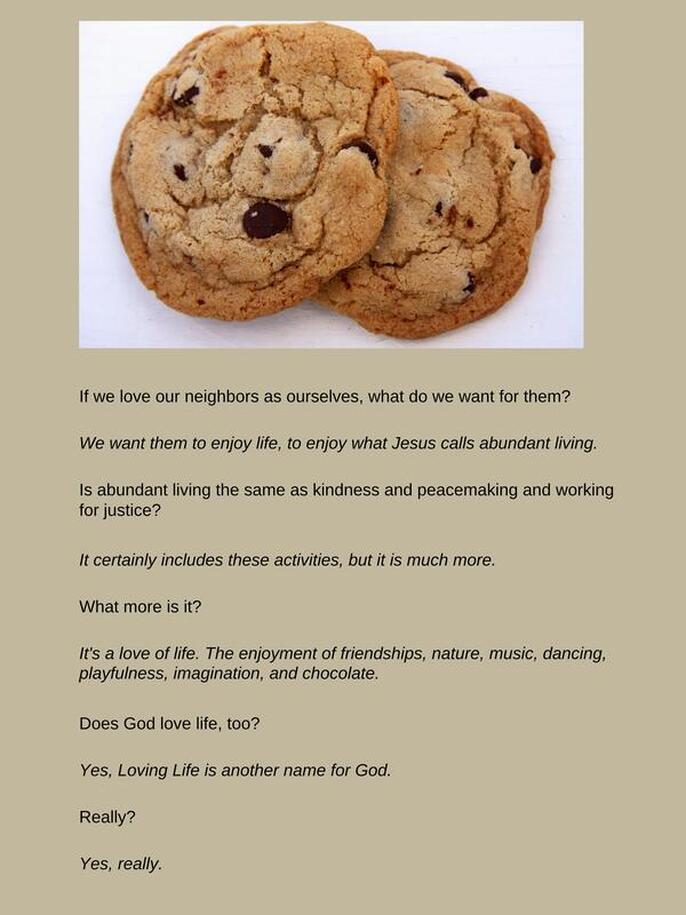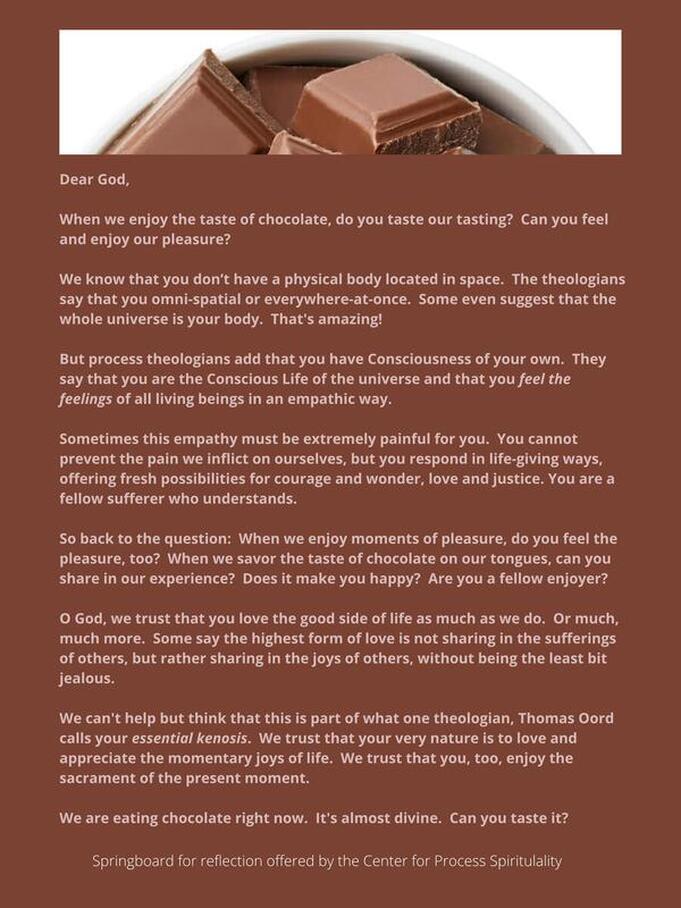- Home
- Process Worldview
- Community
- Art and Music
- Whitehead and Process Thinking
- Podcasts
- Spirituality
- Ecological Civilization
- Education
- Contact
- Social Justice
- Science
- Animals
- Sacred Poems
- Whitehead Videos
- Index of All Titles
- Practicing Process Thought
- Process Spirituality: A Spiritual Alphabet
- Recent Posts
Enjoyment
"Although Whitehead never identifies intrinsic value and enjoyment, it will not mislead much to say that the end of life is to increase God’s enjoyment by increasing enjoyment in the world. Accordingly, we may make the theological statement that God wants us to enjoy ourselves, to enjoy one another, to increase the enjoyment of other people – all other people – and of the other creatures with whom we share this planet as well. To enjoy our own lives more and to contribute to the enjoyment of others is to contribute to God’s enjoyment. Charles Hartshorne calls the ethics of process thought “contributionism.” There can be no higher goal than to contribute to God’s enjoyment. But there can be no tension between contributing to God’s enjoyment and contributing to the enjoyment of God’s creatures." “I came that they might have life, and that they might have it more abundantly." |
Link to Another Chocolate Essay:
The Church of Chocolate
Kyre Adept
The Church of Chocolate is … well, it’s a thought, a dream, an internet religious fantasy, providing ubiquitous social lubrication. The Church of Chocolate sprang into being ten years ago, mainly because I’m an ordained minister without an ordinary congregation or denomination. However, I do have a passion for bringing up people’s resonance, and fine chocolate is the best and fastest way to do that — plus, nobody has to conform to any particular religious affiliation. We’re a very broad church; we embrace all forms of chocolate — although we do draw the line at carob and other chocolate substitutes! Our motto comes straight out of Isaiah: Eat, drink, and be merry, for tomorrow we may diet.
Here’s the serious part: if people truly realized that God is like chocolate, we would all get along a lot better. Think about it: like chocolate, God is omnipresent, makes every situation better, adds richness, depth and complexity, and brings up everyone’s resonance and vibration. It’s all about having a delicious life! Click here for more about the Church of Chocolate and click HERE to join our page on FaceBook
A church can be defined as a community centered on their relationship with God, expressing that relationship through shared ritual and spiritual experience. There is always an interior aspect (gnosis) and an external or social aspect (religion). The church is the link between the inner and outer experience, as well as being a place or group where people can support each other’s theology and spiritual practice. With some people, a certain form of traditional ritual creates that communion or fellow feeling. With others, as in the Church of Craft, provides the link. With ChoCo, it’s chocolate that offers the inner taste and outer communion; our love and appreciation of chocolate gives us a picture of the deliciousness of God.
ChoCo’s purpose is to provide a new picture of spirituality based on bliss and elation (the only true human emotions) instead of guilt, the normative value of religions founded in empire-based cultures. I’m not saying that guilt doesn’t serve a purpose: in terms of human development, it’s still important to notice when we have gone out of alignment with who we truly are. That’s what sin means – being off the mark. We naturally lead better lives when we aligned with God, and doing what we are assigned/designed to do here on Earth. However, we are also designed to process negative conditions and emotions quickly, and then to release them – not to rack ourselves with real and imagined mistakes, guilt, pain and suffering.



